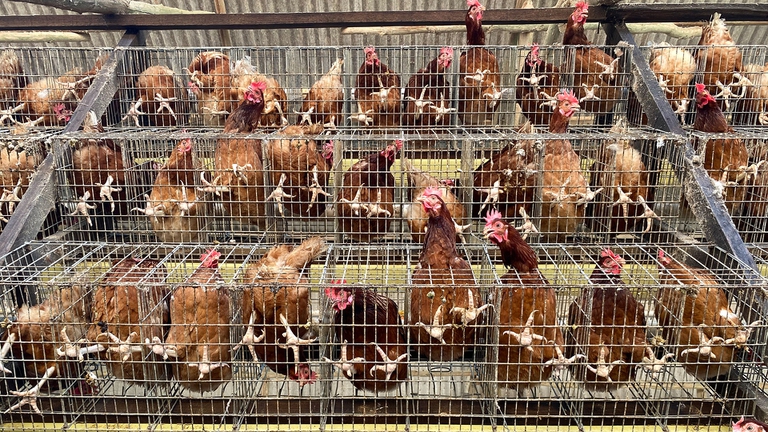https://www.lifegate.it/europa-situazione-animali
- |
Europe seems to have turned his back on the animals:in 2020 the European Commission had undertaken to review the legislation - now obsolete - on animal welfare, but the hope was extinguished during the last plenary session of the European Parliament, in which it emerged that the Commission will not work on this proposal by the end of his mandate.
It is particularly worrying the absence of a clear timeline for the regulation on the conditions of animals still exploited on farms, through which the Commission should also have maintained the commitment, formally made in 2021, to propose legislation to gradually but definitively eliminate cages, in response to the Citizens' Initiative (ICE) “End the Cage Age”, signed by 1.4 million citizens.

Why hasn't Europe kept its promises?
A recent investigation conducted by Lighthouse Reports with IrpiMedia and The Guardian, revealed the role of the livestock industry in the European Commission's failure to publish the legislative proposal of ban on cage breeding within the expected time frame.
Three EU officials familiar with the topic explained to Lighthouse Reports that groups such as European Livestock Voice (ELV) - an organization launched in 2019 by the European meat industry - and some of the associations that support it have carried out aggressive lobbying activity to water down parts of animal welfare laws and attack non-aligned scientific opinions with their goals.
The Elv lobby group is not registered in the EU Transparency Register and has Copa-Cogeca, the most powerful agricultural lobby in Europe, among its partners.
The European Commission has stated that not having worked on animal welfare proposals for inflation, but according to officials, legislators, organizations and documents obtained through requests for access to documents the pressures received behind the scenes they played a fundamental role.
The problem is that because of this the industry will continue to produce and profit;the changes announced by the European Commission will be deferred to the next mandate or even abandoned e animals will continue to suffer due to inadequate legislation.
Nevertheless It is precisely the European citizens who want to see a change in the way animals are treated. According to Eurobarometer published a few days ago over ninety percent of Europeans believe that the practices of farm must meet basic ethical requirements, while two-thirds of respondents said they would like to have more information on the conditions where the animals are raised from farm.More than nine out of ten Europeans believe that farm animals should have sufficient space to move, lie down and get up, and 89 percent say animals should not be kept in individual cages.
We at Animal Equality will continue to commit ourselves and work to ensure that the will of European citizens is respected and so that they are always guaranteed to animals greater protections and safeguards.
But we have I also need your help:each of us, in fact, has the power to decide the fate of these animals, choosing to prefer alternatives to plant based to meat and derivatives.
